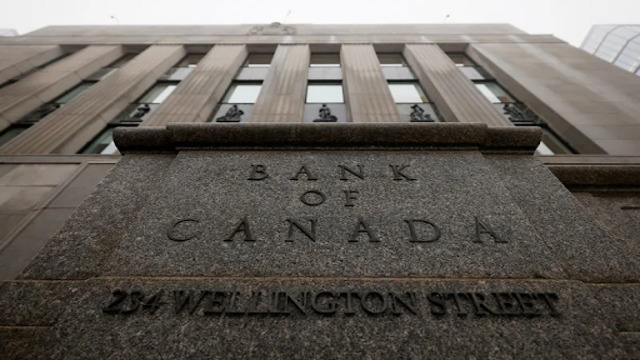
The Bank of Canada building in Ottawa is featured in a Reuters photo.
The Bank of Canada's significant rate cut of 50 basis points on December 11 was a challenging decision, as revealed in minutes from the meeting released on Friday. The move, which reduced the key policy rate to 3.25%, aimed to counter slower economic growth. While the decision was ultimately unanimous, it sparked considerable debate among the Governing Council members.
Some policymakers leaned toward a smaller 25-basis-point reduction, citing encouraging signs in consumer spending and the housing market. They argued that earlier rate cuts were still working their way through the economy, making it prudent to wait and observe before implementing another aggressive move.
Others, however, pushed for the larger 50-basis-point cut, emphasizing growing risks to the economic outlook. They expressed concerns over weakening growth projections and potential downside risks to inflation. These members believed that a bolder step was necessary to safeguard the economy, even if some recent data didn’t fully support such a drastic move.
The minutes highlight how closely balanced the decision was. “Each member acknowledged the difficulty of the call, basing their views on data and the anticipated trajectory of growth and inflation,” the report noted. While the more aggressive approach won out, it wasn’t without hesitation. Some members worried that a substantial cut might overshoot what was needed in the coming months.
Governor Tiff Macklem stressed that while this decision marked a significant shift, any future rate reductions would likely be smaller and more measured. This adjustment in tone signals a departure from earlier indications that consistent easing was the central bank's primary strategy for supporting growth.
The decision to choose the larger rate cut also reflected updated forecasts, which painted a bleaker picture of economic growth compared to predictions made in October. The council concluded that monetary policy no longer needed to remain strictly restrictive, making room for more accommodative measures.
As for the future, the Governing Council remains divided over how much further rates might need to be reduced. The minutes revealed varying opinions on the scale and timing of future cuts. However, members reached a consensus to approach each decision cautiously, taking stock of evolving economic conditions at each meeting.
The central bank’s move is critical for Canada’s economy, as policymakers navigate a fine balance between supporting growth and maintaining stability. With uncertainties still looming, the path forward will be taken one calculated step at a time.















